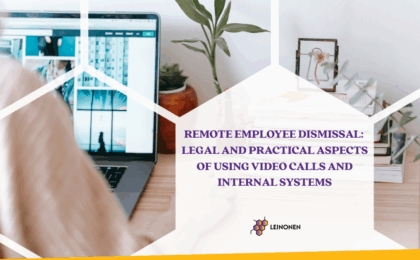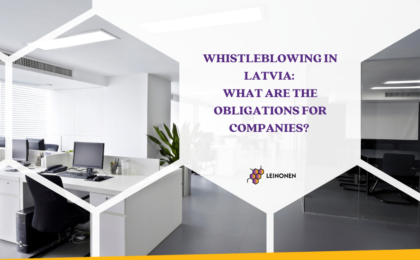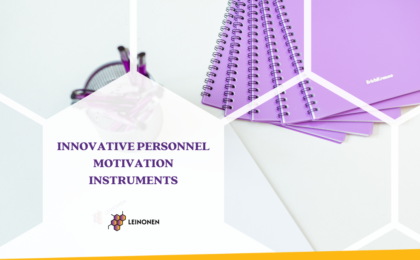Special crisis measures (working capital grant, wage subsidies, working capital loan, loan holidays guarantee, etc.) are available for companies whose activities have been significantly restricted due to the rapid spread of COVID-19. The purpose of these measures is to overcome the negative impacts made by the pandemic and to cope with the government’s restrictions.
We will provide professional assistance in attracting crisis aid by:
- identifying if the company qualifies for a particular State aid;
- preparing and submitting an application for aid;
- filling in other necessary documentation.
The price for aid attracting service depends on the amount of work necessary within the particular programme and the amount of financing approved. Contact us and we will send you our offer.
This summary presents updated information (as of 26.10.2021) on the aid programmes aimed at overcoming COVID-19 consequences and administered by the Latvian Development Finance Institution ALTUM and the State Revenue Service, in the form of an overview of the key criteria for qualifying for the aid.
Aid provided by the State Revenue Service / COVID-19 | |
On 26 October, the Government approved the support programmes drafted by the Ministry of Economics: working capital grant and wage subsidy for persons employed part-time. Support will not be available for economic operators of those industries that are not affected by the restrictions implemented as a result of the emergency situation declared due to the COVID-19 pandemic. Support period: from 1 October 2021 to 30 November 2021. The term for applying for a grant for October will be 10 working days from coming into force of amendments to the Cabinet regulations (i.e. when the European Commission’s approval is received), for November—by 15 December 2021. Support programmes will be available when the amendments to Cabinet regulations are harmonised with and approved by the European Commission. | |
Working capital grant | The taxpayers, enterprises that comply with the definition of the micro, small and medium-sized enterprise**, as well as large enterprises* registered with the State Revenue Service are entitled to apply for the grant to cover the reduction of current asset flow. Application is open for a company that complies with one of the following criteria for a drop-in turnover if such drop is related to restrictions on economic activities imposed due to epidemiological safety measures for limiting the spread of the coronavirus disease:
The support is provided in the amount of 30% of the company’s total gross salary for which the employment taxes were paid in July, August and September 2021, but not more than EUR 100,000 for an applicant in every support period month separately and not more than EUR 1.8 million for a group of related persons. |
Wage subsidy | Wage subsidies are intended to partially compensate for the remuneration of employees, for the income of self-employed persons, owners of micro-enterprises and individual merchants, and for the remuneration of payers of licence fees. Support will be provided for only those persons who, at the moment of submitting an application, have an interoperable COVID-19 certificate confirming vaccination against COVID-19 or recovery from the virus, or if they have started the vaccination process. Application is open for an employer, self-employed person or payer of the licence fee that complies with one of the following criteria for drop in income from an economic activity if such drop is related to restrictions on economic activities imposed due to epidemiological safety measures for limiting the spread of the coronavirus disease:
Support for employers in the form of wage subsidy for one employee shall be in the amount of 50% of the declared average monthly gross wage (for an employee who returns from a child-care leave during the support period, of the parent’s benefit) for the period from 1 July 2021 until 30 September 2021, but not more than EUR 700 in a calendar month. At the same time, the employer is obliged to pay the difference between the amount of the benefit and remuneration. Aid for a wage subsidy for a self-employed person or a payer of the licence fee shall be determined in one of the following amounts:
|
Aid by the Latvian Development Finance Institution ALTUM/ COVID-19 | |
The majority of the available support programmes is currently run by ALTUM, which is a special state-owned development finance institution, which offers not only financing for starting and developing business and ensuring business operation, but also support for companies to overcome the negative impacts of the COVID-19 crisis. | |
Working capital loan | The working capital loan is liquidity support for economic operators whose activities have been affected by COVID-19. The loan amounts to EUR 1.5 million (earlier up to EUR 1 million, increased on 13.05.2021), but the total loan amount may not exceed any of the following criteria:
An economic operator may receive several loans if, at the moment of issuing the loan, the total amount of the loan to be issued and the outstanding amount of any previous loans does not exceed a set maximum loan amount. Fixed interest rate: 1.9%–2.9%. Maturity: 1–4 years. |
Export credit guarantee | The purpose of an export credit guarantee is to compensate the Latvian exporters for the loss caused by the insolvency of or long-term non-payment by a foreign client. In the light of COVID-19, restrictions on receiving export guarantees by exporters shipping goods to developed countries have been lifted thus creating possibilities of applying for support also by large enterprises*. The maximum amount of ALTUM obligations for losses that have been incurred due to non-payment by one foreign customer is EUR 2 million. Amount of guarantee: 90% of the buyer’s limit. The maximum deferred payment period: up to 2 years; in the case of farming products export: up to 547 days. |
Loan holidays guarantee | The enterprises who have faced objective difficulties to make loan payments to banks due to the spread of COVID-19 are offered loan guarantees that allow taking loan repayment holidays or deferred payment of loan principal to the bank. The guarantee can be applied for by micro, small, medium-size** and large* businesses. The amount of the financial service covered by the guarantee shall not exceed 25% of the business’ total turnover in 2019, but the maximum amount of the guarantee shall not exceed EUR 5 million. The guarantee covers 50% of the amount of financial service (the outstanding amount as at the moment of issuance of the guarantee). This support is available until 31 December 2021. |
Express guarantee | This is a guarantee issued within the COVID-19 crisis portfolio guarantee programme (a State guarantee for a credit transaction is issued by a bank) for feasible economic operators who need the guarantee to reduce the negative impact of consequences caused by the spread of COVID-19 on their economic activity or financial position.
The amount covered by the guarantee shall be up to EUR 500,000 and up to 50% of the principal amount. This is a financial benefit for an economic operator in the form of a reduced loan interest rate or credit security indicator. The support shall be available until 31 December 2021. |
Investment fund | The financing is available to large enterprises* whose operations were affected negatively by COVID-19, as well as those large enterprises* who are ready to adapt or transform their current commercial activity model in line with the current business and life challenges. Supported types of investments or a combination of these types of investments to solve the enterprise’s financial needs:
The amount of investments for one enterprise is up to EUR 10 million. |
Support for culture industry companies | Support for feasible culture industry companies that provide art, entertainment and leisure events and whose operations have been affected by the COVID-19 pandemic. Aid can be received by a micro, small, or medium-sized** enterprise registered in the Republic of Latvia. Within the framework of the programme, companies working in the industry are provided support in the form of loans and grants in total in the amount of EUR 6 million. This support is available by 31 December 2021. |
Criteria for determining the status of micro, small, medium-size, and large enterprises:
| |




